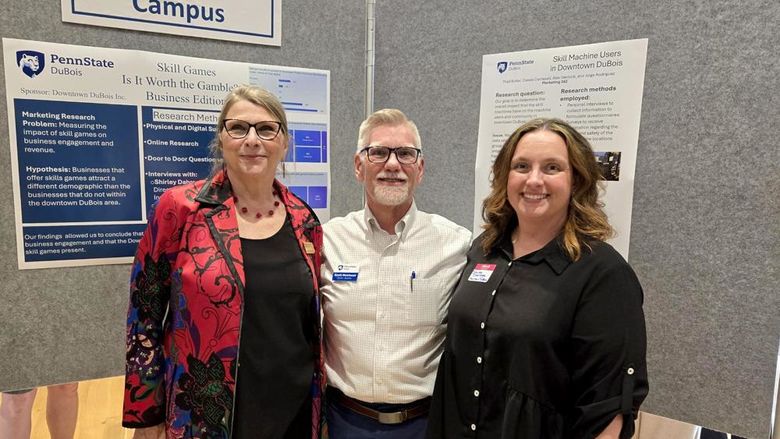
Sarah Pierotti is assistant professor of human development and family studies at Penn State DuBois.
DuBOIS, Pa. — Sarah Pierotti, assistant professor of human development and family studies (HDFS) at Penn State DuBois, recently gave a presentation on the importance of mental health to students, faculty, administration and local media at Universidad Latina de América (UNLA) in Morelia, Michoacán, Mexico.
Taking place virtually on Oct. 12, Pierotti’s presentation, titled “Mental health matters: research and strategies to support well-being,” aimed to share why mental health is important, help remove the stigmas often surrounding mental health, and provide insightful information and techniques that can be used to help better everyone’s mental well-being.
Even when a person’s body is well and fine, mental health is just as important and plays such an important role in our well-being.—Sarah Pierotti , assistant professor of human development and family studies at Penn State DuBois
“Even when a person’s body is well and fine, mental health is just as important and plays such an important role in our well-being,” Pierotti said in her presentation.
Pierotti directly referenced Maslow’s Hierarchy of Needs, which breaks down a person’s individual needs into five categories and connected these categories to that person’s mental health. She also broke down well-being into eight dimensions:
- Core Needs
- Emotional
- Physical
- Environmental
- Social
- Intellectual
- Financial
- Spiritual
Pierotti noted that each of these dimensions are intertwined with each other, meaning that one dimension plays just as important of a role as all the others. She also said that no matter how much we try to plan for every event and every outcome in our life, outside factors will always play a factor in our mental health.
How we focus on our mental health when facing stress is a very important factor in life.—Sarah Pierotti , assistant professor of human development and family studies at Penn State DuBois
“Unfortunately, as we navigate our well-being, stress in life is inevitable,” Pierotti said. “How we focus on our mental health when facing stress is a very important factor in life.”
While the idea of seeking help for one's mental well-being, such as seeing a counselor or psychologist, has become more mainstream and accepted in the United States, faculty members at UNLA said that is not the case in Mexico. There, the idea of not being mentally well and asking for help is still considered somewhat taboo. They also said many people in Mexico cannot afford the cost associated with seeing someone like a psychologist for treatment. To offer those in attendance some level of insight into what mental health treatment is like, Pierotti shared some of her own personal experiences with a counselor and how those sessions have helped her, not only in the past but in the present as well.
Pierotti also shared several different ways people can improve their mental well-being on their own. Meditation, yoga, eating a well-balanced diet, taking a walk and talking to a trusted friend all are examples that were given as possible ways for an individual to improve their mental health in their own life. Pierotti said she hopes her presentation can serve as a steppingstone to help break the mental health stigma in Mexico.





